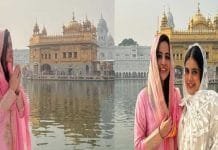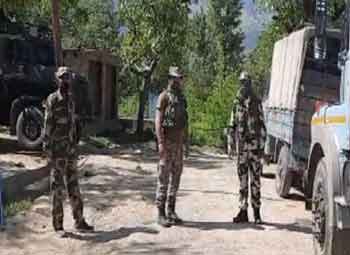
New Delhi – India has lost one of its most cherished voices, Sharda Sinha, whose music has become a staple of cultural celebrations across the nation. Known as the “Bihar Kokila” or “Nightingale of Bihar,” her unforgettable folk renditions have resonated in households from Diwali to Chhath Mahaparva celebrations, spanning decades and generations. Sharda Sinha passed away on Tuesday night at Delhi’s AIIMS hospital, leaving an indelible mark on the heart of India. Her absence is a profound loss not only to the people of UP-Bihar but to the entire country.
The beloved folk singer, who passed away at the age of 72, had been privately battling multiple myeloma, a rare form of cancer. Sinha’s voice will continue to echo through her timeless songs, but her presence will be dearly missed.
A Voice That Reverberated Across Festive Occasions
Throughout her life, Sharda Sinha’s songs became synonymous with Indian festivals and traditions, particularly in Bihar and Uttar Pradesh. From Diwali to the grand Chhath Mahaparva, her songs brought alive the essence of celebration, joy, and devotion. Whether it was the reverent tones of “Ho Deenanath” or the celebratory notes of “Chhath Pooja Geet,” her voice encapsulated the spirit of Indian festivals and traditions like few others could.
As a trailblazer in Indian folk music, she did not merely sing for the sake of performance; she sang to connect with her people, reminding them of their roots, values, and cultural pride. For millions of listeners, her songs remain an auditory anchor to their heritage, enriching homes and Chhath Ghats year after year.
An Illness Veiled from the Public
Sharda Sinha’s journey with multiple myeloma began in 2017, a battle she fought quietly, keeping the details largely within her family. According to her son, Anshuman Sinha, she was determined to keep her personal struggle private. Despite her illness, she continued to inspire audiences, bringing smiles and joy with her performances. She refused to let her pain deter her from doing what she loved most—singing.
However, the recent loss of her father, Brajkishore Sinha, deeply affected her morale. Her son revealed that his mother was shattered by the grief, which impacted her health significantly, weakening her ability to continue her personal fight against her illness.
Understanding Multiple Myeloma: A Devastating Disease
The cancer that Sharda Sinha was privately battling, multiple myeloma, is an aggressive disease that affects the bones, kidneys, and blood cells of those afflicted. Multiple myeloma is a form of blood cancer that begins in the plasma cells in the bone marrow. These cancerous cells crowd out the healthy cells, limiting the body’s natural capacity to produce red and white blood cells and to maintain a healthy immune system.
While it is not fully curable, treatment options exist to manage symptoms and slow progression. In multiple myeloma, the cancerous plasma cells create abnormal proteins, which circulate in the bloodstream and lead to further complications, including bone weakness, kidney damage, and compromised immunity. Dr. BP Singh, a well-known cancer specialist, describes multiple myeloma as a particularly challenging cancer, especially given its effects on multiple systems within the body.
A Lasting Legacy in Indian Folk Music
Sharda Sinha’s musical career spanned more than four decades, during which she produced an extensive body of work that has been celebrated widely. Born in Bihar, Sinha had a profound connection with her home state, and her songs celebrated the richness of the Maithili, Bhojpuri, and Magahi languages. Her dedication to folk music brought her recognition beyond regional borders, elevating her to a national icon.
She received numerous awards, including the Padma Bhushan and Padma Shri, in honor of her contributions to Indian music. Sharda Sinha’s commitment to preserving and popularizing folk traditions in a rapidly modernizing world remains a unique and enduring aspect of her legacy.
Celebrating Sharda Sinha’s Iconic Songs and Achievements
Several songs brought Sharda Sinha into the limelight. Her renditions in Diwali and Chhath Puja celebrations, like “Pahile Pahil Hum Kayeni Chhath” and “Kelwa Ke Paat Par,” remain embedded in the collective memory of listeners. Each song embodies the emotions of devotion, joy, and cultural pride, offering listeners a connection to the spiritual roots of these festivals.
1. National Honors for Preserving Folk Culture
Sharda Sinha received the Padma Shri in 1991, followed by the Padma Bhushan in 2018, two of India’s most prestigious civilian awards. Her recognition reflects her dedication to Indian folk music, which she tirelessly promoted. Through her efforts, she transformed Bhojpuri and Maithili folk songs into beloved musical traditions.
2. Broadening the Appeal of Maithili and Bhojpuri Music
As a pioneering female folk artist, Sharda Sinha redefined the landscape of Bhojpuri and Maithili music. Her success helped pave the way for future generations of artists who sought to bring regional music to the forefront of the Indian cultural tapestry. Her songs have not only been embraced within Bihar and UP but across the country, drawing audiences from diverse linguistic and cultural backgrounds.
3. An Artist Who Revived Folk Traditions in Modern India
In an era of rapid change, Sharda Sinha’s songs retained a deep sense of tradition. Her music was a voice for those who sought to reconnect with their roots, reminding them of the richness of Indian culture. Sinha’s legacy in folk music goes beyond entertainment; it serves as an enduring reminder of India’s heritage, which she lovingly shared with the world.
The Resounding Impact of Sharda Sinha’s Passing
Sharda Sinha’s passing leaves a void that is hard to fill. Her music symbolized a connection to cultural heritage, a reminder of family, faith, and the resilience of tradition. Fans from all over India, especially in Bihar and Uttar Pradesh, mourn her passing, feeling the weight of a voice that united so many across the country.
Her songs, so deeply ingrained in Indian celebrations, will continue to be played, allowing her voice to remain alive, particularly during the Chhath Mahaparva. The enduring impact of her music ensures that her memory will stay vibrant, and her songs will continue to echo at festivals and gatherings, bridging generations.
Conclusion: A Legacy That Will Forever Resonate
Sharda Sinha’s contributions to Indian music are unparalleled, and her passing marks the end of an era. But while the artist is no longer with us, her musical legacy lives on. From the bustling streets of Patna to the Chhath Ghats along the Ganges, her songs are more than melodies—they are symbols of culture, memory, and identity. Her legacy endures not only in the awards and accolades she earned but in the hearts of those who find solace, joy, and connection in her songs.
As we bid farewell to Sharda Sinha, the Bihar Kokila, we remember her not just as a folk singer but as a true custodian of India’s rich cultural heritage. She will be missed, but her voice and spirit will resonate across generations, keeping her alive in the hearts of millions.



















